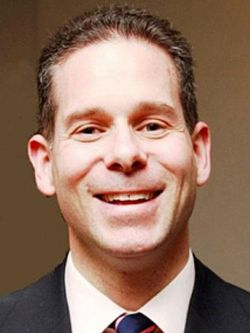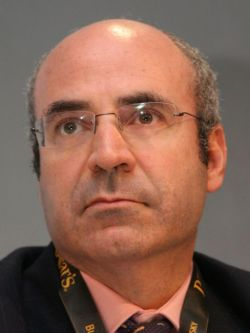The lack of an official explanation for the abrupt expulsion from Russia of U.S. lawyer and former Justice Department official Thomas Firestone earlier this month has led to a flurry of speculation about what may have prompted it.
Firestone, an expert on corruption in Russian law enforcement agencies who worked as a lawyer for the Moscow office of the Baker & McKenzie law firm, was detained at Sheremetyevo Airport on May 5 when returning from a trip abroad. Officers kept him in the airport for some 15 hours before ultimately sending him to the U.S.
 Thomas Firestone
Thomas Firestone
spblegalforum.com
The expulsion follows an exchange of insults between the U.S. and Russia last month, when the U.S. released a blacklist of 18 Russian officials allegedly implicated in human rights violations who were banned from entering the U.S., and Russia responded with a similar blacklist of 18 U.S. officials.
"I don't know what the reason for Firestone's expulsion was, but [it's true that] he was very active in advocating for the release of Sergei Magnitsky in 2009 and that he made a number of requests to Russian officials asking them for his release," Hermitage Capital head William Browder said by phone Tuesday.
If it's true that Firestone was expelled over the U.S. Magnitsky Act, he wouldn't be the first American citizen to face repercussions from the so-called Anti-Magnitsky list.
Chris Smith, a top U.S. lawmaker, was refused a Russian visa earlier this year and blamed it on his vocal backing of the U.S. Magnitsky Act.
 William Browder
William Browder
Maxim Stulov / Vedomosti
Magnitsky was imprisoned on tax evasion charges in 2008 after accusing officials of stealing $230 million in state funds. He died in jail a year later.
Neither Firestone's nor Smith's names were featured on the blacklist published on the Foreign Ministry's website, but like the the U.S., Russia may have kept a part of the list classified, with top officials hidden to prevent relations from being strained further.
"When Firestone worked for the U.S. government in Moscow, he was involved in many aspects of analyzing the Magnitsky case and working with the embassy to try and stop the attacks on [auditing firm] Firestone Duncan, including a last ditch effort to save Sergei [Magnitsky] and get him out of detention," said Magnitsky's former employer Jamison Firestone, whose firm performed legal services for Hermitage Capital.
Thomas Firestone is not related to Jamison Firestone.
He added, however, that he didn't believe the Magnitsky case was the reason for the expulsion, and that Thomas Firestone's recent work for Baker & McKenzie was also likely not to blame, as it "was totally not political in nature."
The U.S. Embassy in Moscow declined to comment on the matter.
Russia's Foreign Ministry also declined to comment, saying that in accordance with international practice,
foreign ministers never comment on visa denials.
Baker & McKenzie confirmed to The Moscow Times on Tuesday that Firestone now works for the company's Washington office.
A direct request to Firestone to comment was forwarded to Baker & McKenzie's Chicago office, which said in a statement that no one in the company had been informed for the reason behind the expulsion.
"We have no reason to believe that our colleague has engaged in wrongdoing of any kind. Until the reasons for the Russian government's action are clear, we will have no further comment," the statement said.
The New York Times reported that the U.S. administration had raised the issue of Firestone's expulsion with the Russian government.
The New York Times, citing someone acquainted with Firestone, reported that another possible reason for the expulsion was his refusal to work with the Federal Security Service as a spy for the Russians.
"The only conceivable reason he could have been barred was his refusal to meet unofficially with FSB officers and the fact that he reported that approach to both the U.S. government and his employer," Jamison Firestone said.
Contact the author at [email protected]
A Message from The Moscow Times:
Dear readers,
We are facing unprecedented challenges. Russia's Prosecutor General's Office has designated The Moscow Times as an "undesirable" organization, criminalizing our work and putting our staff at risk of prosecution. This follows our earlier unjust labeling as a "foreign agent."
These actions are direct attempts to silence independent journalism in Russia. The authorities claim our work "discredits the decisions of the Russian leadership." We see things differently: we strive to provide accurate, unbiased reporting on Russia.
We, the journalists of The Moscow Times, refuse to be silenced. But to continue our work, we need your help.
Your support, no matter how small, makes a world of difference. If you can, please support us monthly starting from just $2. It's quick to set up, and every contribution makes a significant impact.
By supporting The Moscow Times, you're defending open, independent journalism in the face of repression. Thank you for standing with us.
Remind me later.





